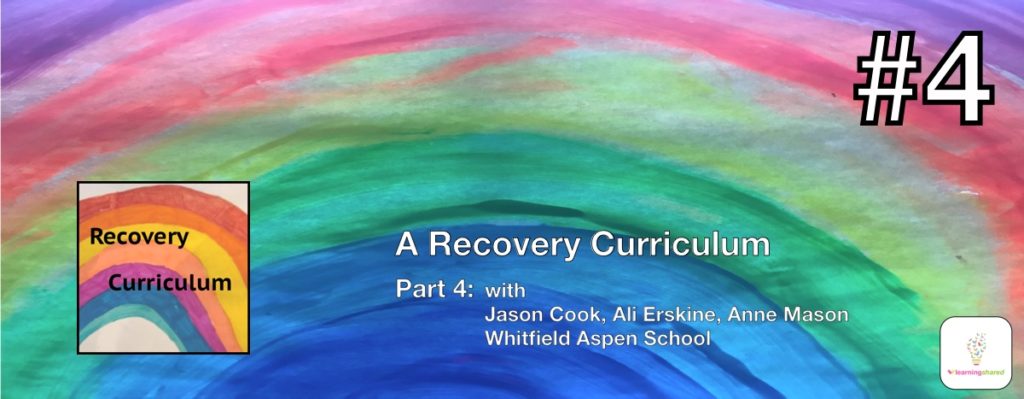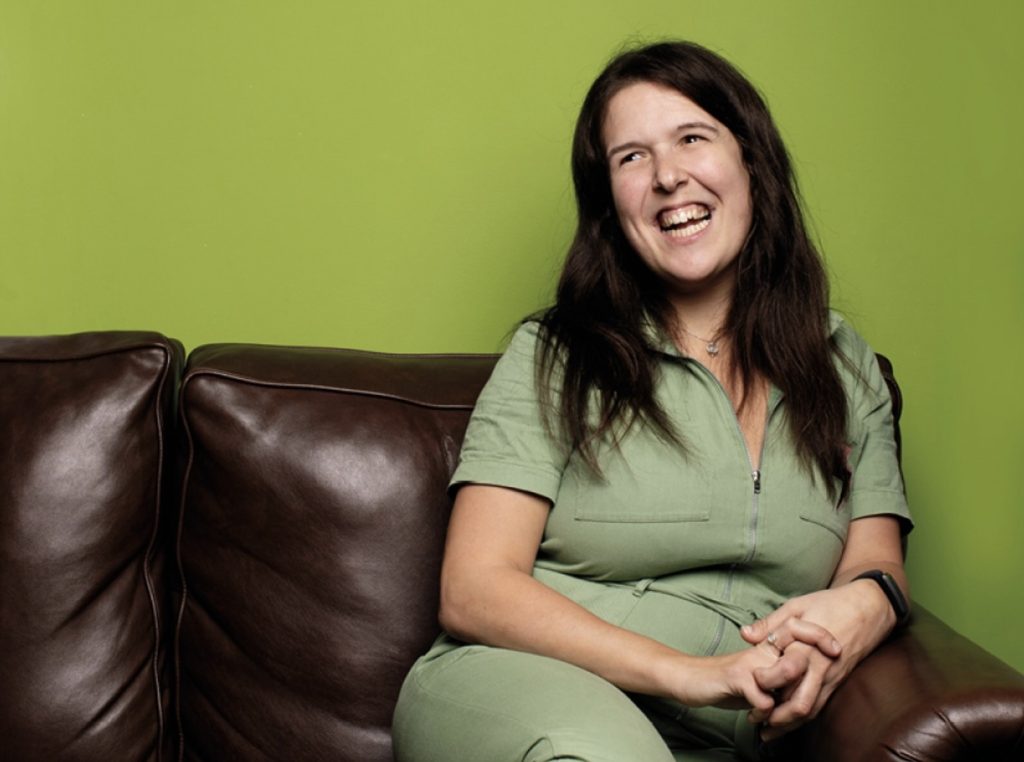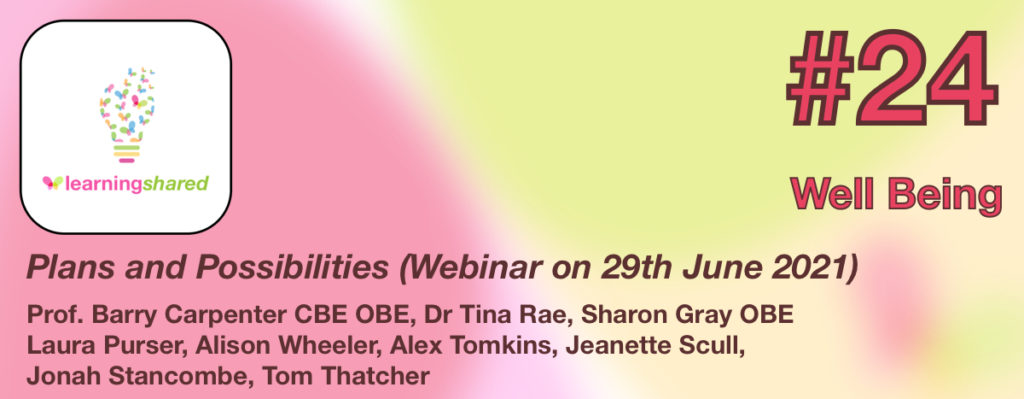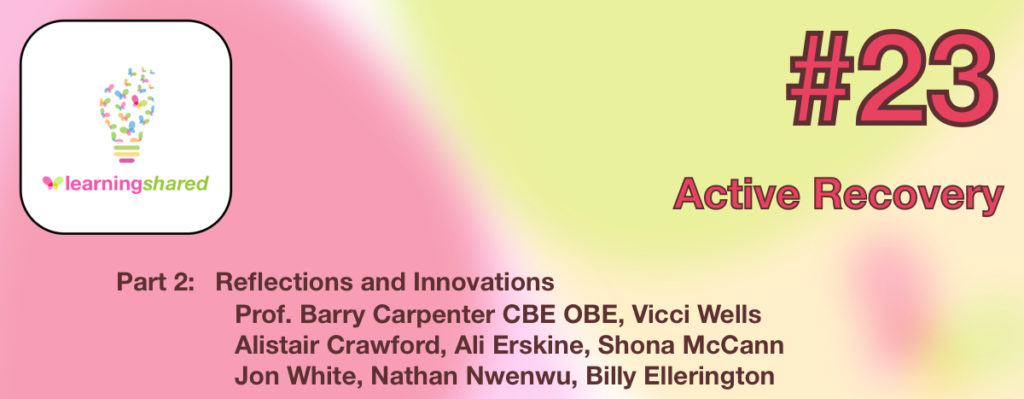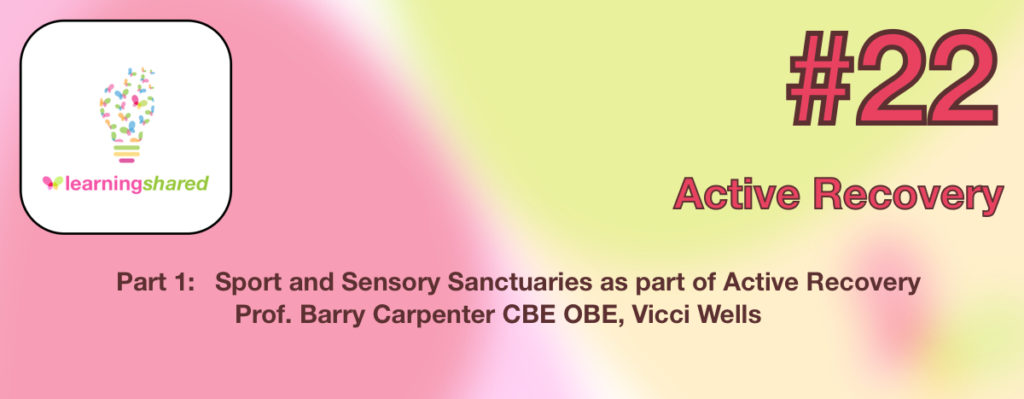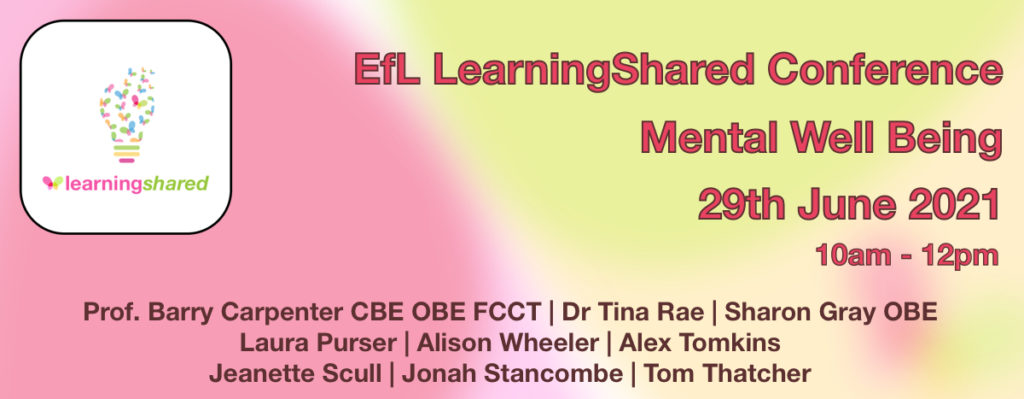In this episode the leadership and management of the Recovery Curriculum is discussed by the Senior Leadership Team of Whitfield Aspen School, a primary school in Dover.
This is a unique, inclusive primary school with over 300 pupils, and over 130 in the resourced provision for children with severe and profound learning difficulties. The discussion focuses on the leadership challenges the SLT are experiencing, between Jason Cook, the Executive Headteacher, and the two Heads of School, Ali Erskine and Anne Mason and some of the ideas and steps that the school has already been taken to commence the recovery process.
They describe a genuine whole school and community approach that has engaged and valued contributions from all stakeholders from teachers and other staff to families and the children themselves. A particular strength of the school is family engagement, and the rich dialogue around teaching between families and school. Teamwork, at all levels, is at the heart of what the school does, and brings reality to the vision the school holds of building an inclusive educational community that values all children as successful learners.
Nothing exemplifies this more than the video linked below, that shows the children at Whitfield Aspen performing the song “ Roar”… perhaps emphasising the courage we all need to face these extraordinary times. The video was part filmed just before and part filmed during school lock down.
https://whitfield-aspen-school.primarysite.media/media/roar
New Reports for the New Context
In thinking about the consequences of the majority of pupils not being in school, one of the concerns that came through from the teachers at Whitfield Aspen, was the relevance of the traditional school report.
They noted that for reports that are sent out to parents at the end of the academic year, the teachers will not have taught the children since March. One teacher expressed that the longer she was away from her class, the more detached she was feeling. She wondered how useful and relevant it would be to write a school report which effectively would be 4 months out of date. In fact, for some parents who have been home-schooling their own children, they probably have a better idea than the child’s teacher of where their children are in their learning, and the areas they need to improve on. Also, there were concerns for the children who have not had parental supported home learning opportunities. The teachers were concerned that any information in a report would not acknowledge the potentially life-changing personal challenges that these children may have experienced.
The feeling was that the school could use this opportunity to create something different, which could be a small positive in an extremely challenging situation. One teacher was keen to create a “Celebration of your child” report. She felt that being away physically from her class, had given her time to remember the funny things they have done or said. The moments in class when they really tried hard to do something and finally succeeded! So she created a format where she could celebrate the children showing resilience despite adversity. It was also an opportunity to acknowledge the remarkable character strengths of the children of Critical and Key-workers. In discussions with all of the teachers the feeling was that a traditional school report would not reflect what was important at a time when life has been so different and challenging for the children and their families. The school team is acutely aware that many parents could be struggling with the reality of losing friends or family and would be living with the fear and reality of losing their jobs and wanted parents and the children to have a lasting memory of the positive aspects of this time and to encourage hope for the future.
Teachers added to a list of key characteristics they felt they wanted to comment on for the children in their classes. These included the words of the values of the school (Learning together with Aspiration, Imagination and Determination) and the vocabulary of 5 Lenses of Engagement. Aspiration, Determination, Imagination, Perseverance, Resilience, Kindness, Collaboration, Responsibility, Confidence, Respectfulness, Self-discipline, Consideration, Exploration, Realisation Anticipation, Persistence and Initiation.
Jason, Ali and Anne have kindly shared a sample of the new report below:
Whitfield Aspen School – New Reports for the New Context (Word DOC file)
About Whitfield Aspen, Jason, Ali & Anne
Whitfield Aspen School
Whitfield Aspen is a fully inclusive Primary School with links to KSENT (Kent special schools) and the Samphire Learning Hub (a hub of 8 local mainstream Primary Schools). There are 356 pupils on our Mainstream roll and 128 pupils, with profound and multiple learning difficulties ,on the roll of our Specialist Resource Provision. All the pupils access their learning in the environment that best suits their individual needs. This could be full time in a Mainstream class , full time in a Specialist Provision class , or time spent between Mainstream and Specialist Provision classes. At our school we encourage ‘the same’ but allow for ‘different’. In other words, every child should have the same opportunity but every child will access this in different ways. Our pupils come in through the same door, eat in the same hall , play in the same play areas and come to school with their brothers and sisters. In this way, we live out our school’s vision of ‘Learning Together with Aspiration, Imagination and Determination’.
Jason Cook, Headteacher
I started my teaching career in a one form entry school in Dover. I was lucky enough to work for a Headteacher who actively pushed me to think about my career. My wife worked for a Headteacher who had worked abroad. This resulted in us moving to the Middle East for three years where I was maths lead in a large Embassy sponsored primary school. I learnt a great deal about leadership from SLT there as well as the need for a strong team built around trust and a shared sense of responsibility.
I returned to the UK to take up a KS2 coordinator position at Whitfield Aspen School. My first taste of a truly inclusive school which has never stopped refining its approach.
I have been there since 2001 and held most senior leader positions!
Anne Mason, Head of School (KS2)
During my early career in industrial chemistry, I had the opportunity to deliver training and coaching to staff, which inspired me to retrain as a teacher.
For sixteen years, I worked as a key stage 2 class teacher, across a range of classes and abilities in mainstream primary schools, before becoming an Assistant Head, and then Acting Head. Eight years ago, I moved to Whitfield Aspen School, an unusual school, being a combination of mainstream primary and special school (profound, severe and complex). Working as Head of School (KS2), and being part of a highly supportive team, with a diverse range of experiences, has enabled me to better understand both the challenges and rewards of working in a fully inclusive school.
Ali Erskine, Head of School (KS1)
Throughout my teaching career, I have taught in both mainstream schools and special schools. Thirty years ago, I started teaching in a school for children with learning and behaviour challenges, I was part of a team who valued the importance of personalised learning. I saw what a difference making learning relevant and meaningful for each child made to the children’s motivation and ability to learn. These experiences were invaluable, both in my next role in a mainstream school, and then when I started teaching in a school for children with profound, severe and complex learning needs. During this time I taught in every key stage from Nursery to Post-16. Eight years ago, I joined Whitfield Aspen, a unique fully inclusive primary school, and I am now Head of School KS1, and part of our creative leadership team.
Whitfield Aspen School
https://www.whitfieldaspenschool.co.uk
More info on the Recovery Curriculum
For information on the Recovery Curriculum, including the original Think Piece entitled “A Recovery Curriculum: Loss and Life for our children and schools post pandemic”, lectures, resources, reference materials and details of the online communities of practice, visit:
http://www.recoverycurriculum.org
Join the conversation about The Recovery Curriculum:
Clearly any form of Recovery Curriculum will need to be unique to each and every school, contextualised to the ethos, culture and values of that school, as well as its existing curriculum and crucially reflecting and addressing the needs and aspirations of its unique population of learners.
We have created private groups in LinkedIn and Facebook where colleagues and peers can discuss and share thoughts, ideas, experiences, resources and learning in relation to education and provision post pandemic. The groups are also an opportunity to connect people and help you to build a network that can support you on your own important journey over the coming months.
Facebook Group: Recovery Curriculum
We’ve set up a private facebook group specifically for The Recovery Curriculum at:
https://www.facebook.com/groups/recoverycurriculum
or search for “recoverycurriculum” in Facebook.
Facebook: EfL SEND Community Group
Join us at:
https://www.facebook.com/groups/eflSENDCommunity/
or search for “eflSENDCommunity” in Facebook.
The purpose of the group is to provide a safe, closed space to seek out and share ideas, experience and resources that can help with any and all aspects of SEND provision. It’s also a community for practitioners and schools that use Evidence for Learning and Insights for Learning to share ideas, resources and support each other in using these apps. This is a peer-moderated and supported group.
Linkedin Group: The Recovery Curriculum
The group is called “A Recovery Curriculum for children & schools post-pandemic” and you can find it at:
